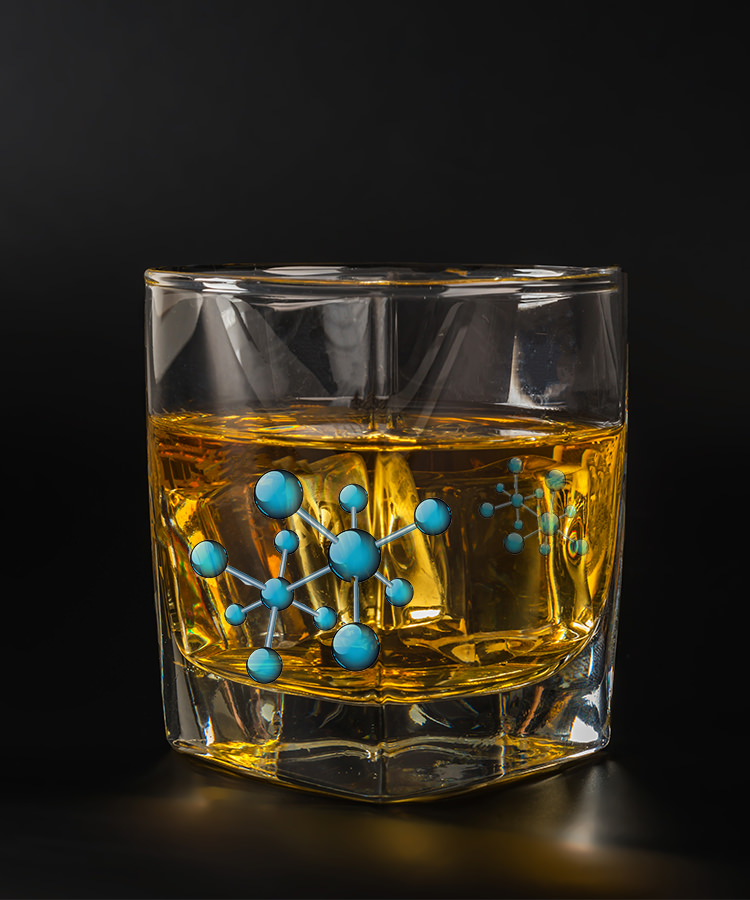Whisky drinkers can be awfully protective of their hooch, particularly when it comes to the issue of water dilution. Proponents of the purist approach often argue that ice or even a couple of drops of water can ruin the integrity of your favorite Bourbon, Rye or Scotch. Others assert that adding a drop or two of water actually improves whisky’s taste, accentuating its flavor and aroma. According to a study published by Scientific Reports, there may be a molecular reason behind proponents of water dilution.
The addition of water to alcohol is not a new phenomenon. The ancient Romans would often mix their heavy wine with water in mixing bowls. Absinthe and its anise liquor cousins are often prepared by dripping water over a sugar cube into the green stuff. And I’m not the first person to order a Jack on the rocks on hot summer evening. High school chemistry is a distant memory, but the fundamentals can help us understand why water might improve the whisky experience.
The molecule responsible for much of the smell and taste of whisky is called guaiacol, which interacts with water and ethanol molecules. The first factor is the liquid-air interface, which is where the whisky and air meet at the top of the glass. The more guaiacol molecules present at the surface, the more aroma and flavor you will taste. The second factor is alcohol concentration. “We found that guaiacol is preferentially associated with ethanol, and, therefore, primarily found at the liquid-air interface in mixtures that contain up to 45 vol-% of ethanol,” according to Scientific Reports. The alcohol and guaiacol molecules compete for space at the liquid-air interface. Therefore, fewer alcohol molecules create more room for guaiacol molecules at the surface.
As a result of this space dynamic, researchers determined cask strength whisky contains too many ethanol molecules, which leave less space at the liquid-air interface for guaiacol molecules. “At cask-strength concentrations of 59 vol-% or higher, EtOH interacts more strongly with the guaiacol above and below the ring-plane, and guaiacol is therefore driven into the solution,” Scientific Reports asserts. Consequently, adding a couple of drops of water to higher proof whisky dilutes the concentration of alcohol molecules, leaving more area for guaiacol molecules at the surface.
Nevertheless, it always boils down to personal preference. There appears to be science behind adding a drop or two of water to higher proof Scotch, Bourbon and Rye. However, water may be an unnecessary risk for the average 40% ABV whisky where guaiacol is already significantly present at the surface. Balance is key, but the most important thing is to take it the way you like it.
